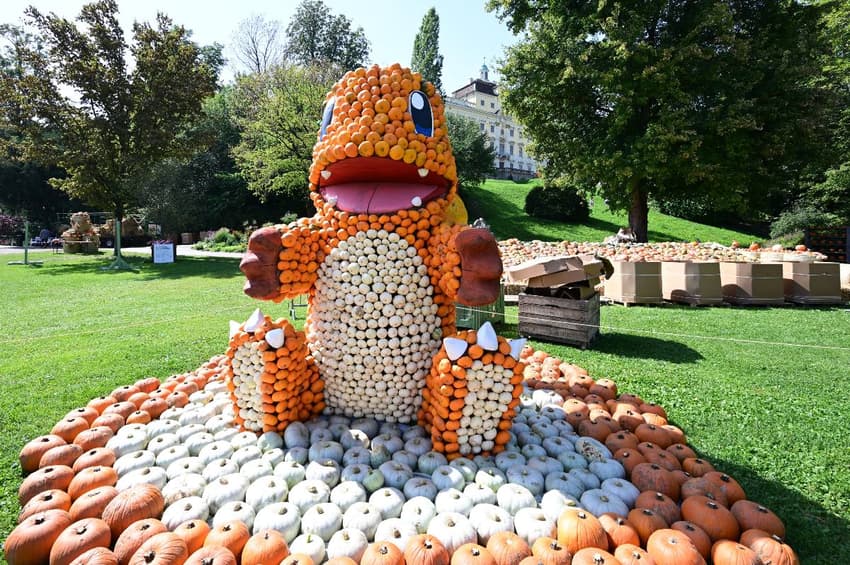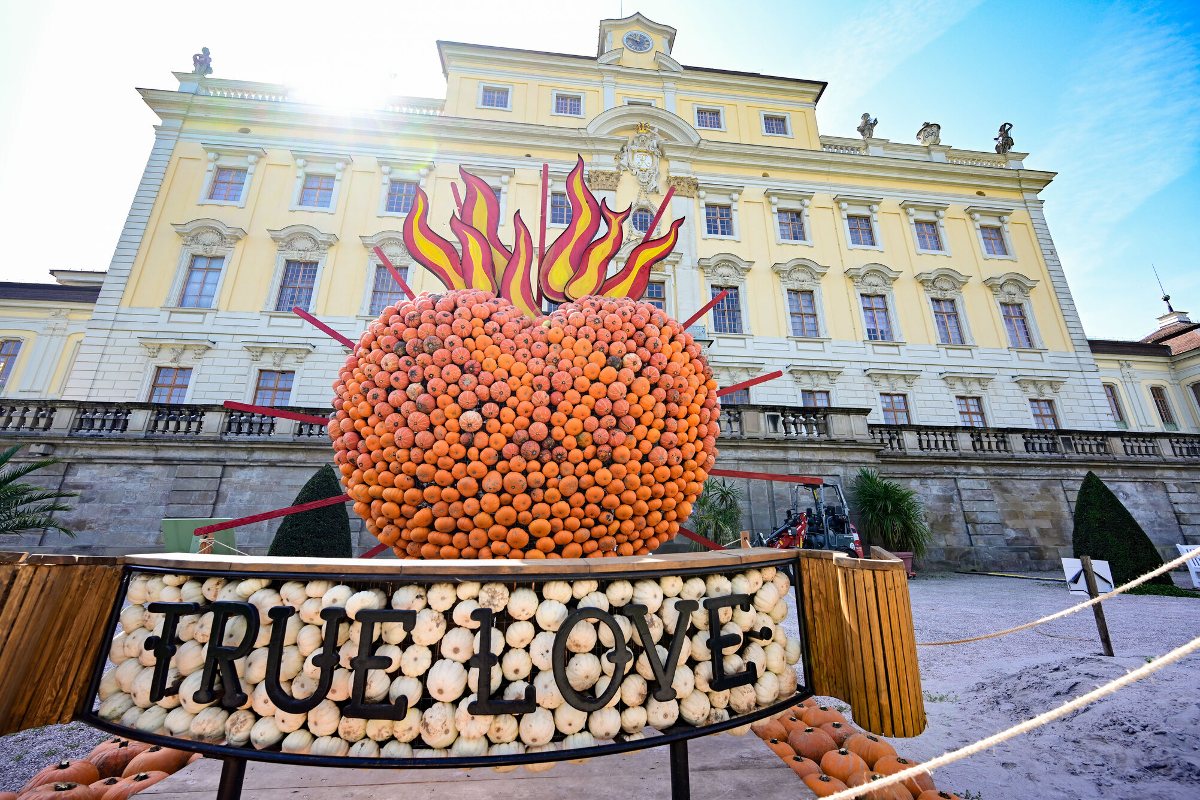Living in Germany: Reasons why foreigners don't learn German, pumpkin love and coffee filters

In this week's roundup, we look at a debate surrounding foreigners not speaking German (and why some people don't learn the language), the start of a famous pumpkin festival and how a German invented coffee filters.
Living in Germany is our weekly look at some of the news and talking points in Germany that you might not have heard about. Members can receive it directly to their inbox on Saturday.
Some foreigners don’t learn German or take longer to do it - should they be called out for it?
The debate on foreigners learning German (or not) rears its head often. Last week, we reported on the reaction to the Berliner Zeitung’s opinion piece, which asked why so many foreign nationals in Berlin do not learn German. The writer went on to say that not speaking German in Germany is a form of “arrogance” and “colonialism”. This sparked outrage and reignited the debate online.
It’s not the first time this polarising topic has arisen. A few years ago former Health Minister Jens Spahn of the conservatives complained about people speaking too much English (and not even German) in Berlin cafes. Meanwhile, a debate over mandatory German language tests before school came up again earlier this summer, with the Christian Democrats arguing it would improve integration. In our experience, very few foreign nationals are refusing outright to learn or speak German in a spiteful way. When you dig deeper there are plenty of reasons why someone’s German language skills may not be that great. Sometimes people are not planning to stay in Germany that long. Sometimes there are time or money constraints. Sometimes people just don’t want to learn a language; perhaps they already have two, three or more other languages that they speak, and they can get by without speaking German.
Of course there is an argument for knowing the basics of German regardless of how long you’re in the country or if your friendship group is international. But perhaps instead of shaming people for not speaking German, a bit more empathy would go a long way. Each person has their own journey with learning languages; it’s not black and white. We asked The Local readers for their opinion on whether foreigners in Germany should make more of an effort to learn German. We received more than 80 responses and we’re going through them at the moment for an article. If you didn’t get the chance to comment, feel free to email us and let us know your views: [email protected]
Tweet of the week
Speaking of the German language, hopefully you “eingecremt” yourself this week during the super hot weather.
In Germany we don’t say “I have already applied my sun screen”
We say “I have already creamed myself” and I think that’s beautiful
— Jonny Whitlam Berlin Guide (@WhitlamsBerlin) August 24, 2023
Where is this?

Photo: picture alliance/dpa | Bernd Weißbrod
OK don’t hate us. We know it’s still summer a while longer. But Germany’s ‘true love’ (at least in autumn) has arrived - the pumpkins or Kürbissen. That’s right, the famous pumpkin festival kicked off in Ludwigsburg on Friday, August 25th. Up until December 3rd, the grounds of the Ludwigsburg Palace host the world’s largest pumpkin exhibition (don’t worry, we’ll show you some more photos once the event is in full swing). Expect 450,000 pumpkins and 600 varieties shaped into elaborate sculptures. You can also try pumpkin-based meals, including soups and the Swabian delicacy Maultaschen.
Did you know?
Where would we be without our daily coffee? It’s certainly something that The Local team relies on. And did you know that the coffee filter was actually invented by a German?
Dresden housewife Melitta Bentz is said to have created the filter because she was frustrated by the quality of coffee produced by percolators, which left grounds in the drink and over brewed it. With the desperation many caffeine-lovers will recognise when they want a good cup of coffee, Bentz experimented using the blotting paper from her children’s school books and noticed that her coffee was far less bitter and almost free of pesky grounds. She patented the discovery in 1908 and it became so successful that she even set up her own business, nowadays called ‘Melitta’ and still under the control of her family. The method is still used today, and remains a favourite among coffee connoisseurs.
Comments
See Also
Living in Germany is our weekly look at some of the news and talking points in Germany that you might not have heard about. Members can receive it directly to their inbox on Saturday.
Some foreigners don’t learn German or take longer to do it - should they be called out for it?
The debate on foreigners learning German (or not) rears its head often. Last week, we reported on the reaction to the Berliner Zeitung’s opinion piece, which asked why so many foreign nationals in Berlin do not learn German. The writer went on to say that not speaking German in Germany is a form of “arrogance” and “colonialism”. This sparked outrage and reignited the debate online.
It’s not the first time this polarising topic has arisen. A few years ago former Health Minister Jens Spahn of the conservatives complained about people speaking too much English (and not even German) in Berlin cafes. Meanwhile, a debate over mandatory German language tests before school came up again earlier this summer, with the Christian Democrats arguing it would improve integration. In our experience, very few foreign nationals are refusing outright to learn or speak German in a spiteful way. When you dig deeper there are plenty of reasons why someone’s German language skills may not be that great. Sometimes people are not planning to stay in Germany that long. Sometimes there are time or money constraints. Sometimes people just don’t want to learn a language; perhaps they already have two, three or more other languages that they speak, and they can get by without speaking German.
Of course there is an argument for knowing the basics of German regardless of how long you’re in the country or if your friendship group is international. But perhaps instead of shaming people for not speaking German, a bit more empathy would go a long way. Each person has their own journey with learning languages; it’s not black and white. We asked The Local readers for their opinion on whether foreigners in Germany should make more of an effort to learn German. We received more than 80 responses and we’re going through them at the moment for an article. If you didn’t get the chance to comment, feel free to email us and let us know your views: [email protected]
Tweet of the week
Speaking of the German language, hopefully you “eingecremt” yourself this week during the super hot weather.
In Germany we don’t say “I have already applied my sun screen”
— Jonny Whitlam Berlin Guide (@WhitlamsBerlin) August 24, 2023
We say “I have already creamed myself” and I think that’s beautiful
Where is this?

OK don’t hate us. We know it’s still summer a while longer. But Germany’s ‘true love’ (at least in autumn) has arrived - the pumpkins or Kürbissen. That’s right, the famous pumpkin festival kicked off in Ludwigsburg on Friday, August 25th. Up until December 3rd, the grounds of the Ludwigsburg Palace host the world’s largest pumpkin exhibition (don’t worry, we’ll show you some more photos once the event is in full swing). Expect 450,000 pumpkins and 600 varieties shaped into elaborate sculptures. You can also try pumpkin-based meals, including soups and the Swabian delicacy Maultaschen.
Did you know?
Where would we be without our daily coffee? It’s certainly something that The Local team relies on. And did you know that the coffee filter was actually invented by a German?
Dresden housewife Melitta Bentz is said to have created the filter because she was frustrated by the quality of coffee produced by percolators, which left grounds in the drink and over brewed it. With the desperation many caffeine-lovers will recognise when they want a good cup of coffee, Bentz experimented using the blotting paper from her children’s school books and noticed that her coffee was far less bitter and almost free of pesky grounds. She patented the discovery in 1908 and it became so successful that she even set up her own business, nowadays called ‘Melitta’ and still under the control of her family. The method is still used today, and remains a favourite among coffee connoisseurs.
Join the conversation in our comments section below. Share your own views and experience and if you have a question or suggestion for our journalists then email us at [email protected].
Please keep comments civil, constructive and on topic – and make sure to read our terms of use before getting involved.
Please log in here to leave a comment.